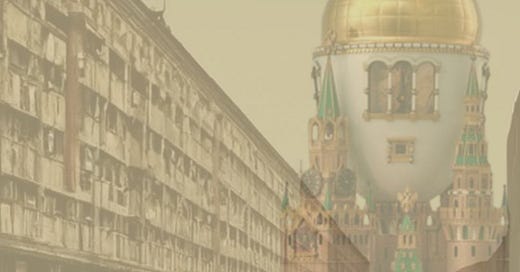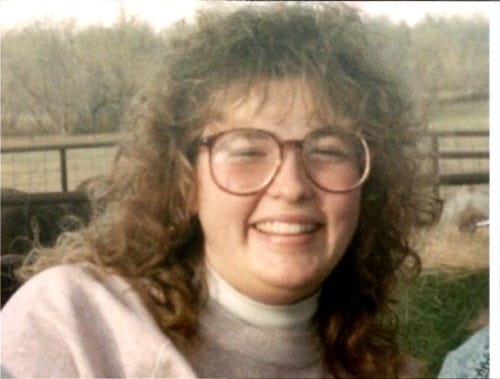1991 was a weird year. In January, I wore all black to school for several days as part of a silent protest at the start of Operation Desert Storm. It felt right to do something, but my tiny conservative world mocked the display and “hoo-rah’d” their way into a Middle East conflict that still echoes in 50 shades of PTSD.
Clarence Thomas’s face flashed on the news as the smear of sexual harassment tarnished the hearings of his appointment to the Supreme Court. Gross allegations and images of coke cans prompted a gag reflex heard around the world.
Rodney King’s assault triggered and fomented a generational rage ultimately leading to riots in LA. Before then? I didn’t understand riots. Not in America. Those things happened elsewhere. Not here. Not to us. It was so dissonant, and we had no context. Those who lived through the Vietnam protests and the civil rights protests shook their heads.
Dr Death, Dr. Jack Kevorkian, and mercy-killings sparked euthanasia debates that made their way into polite conversation and our capacity for absorbing shocking information increased.
Riveted by the nightly news, we watched the independence of the Baltic states be recognized by the US. The thrill of watching Germany re-align and Berlin return to a whole city a recent memory as the dissolution of the Soviet Union began in earnest.
START 1, a treaty limiting nuclear proliferation, was signed between the USA and USSR. September 6th, Leningrad disappears, and St. Petersburg rises from the ashes of a new kind of revolution, her summer palace gleaming once more. On November 6th, the secret police, the black ops of Khruschev, ceased operations. December 1st, Ukraine declares herself independent, and on Western Christmas, December 25th, the last president of the Soviet Union resigned.
The rumble of the Iron Curtain’s fall got louder and louder as the year progressed until all that remained was rubble and fear. The voice of the movement playing in a loop on local radio stations. 1991’s international soundtrack resembled the haunting whistle woven through the melody of “Winds of Change” by the German band Scorpions. Their politically charged lyrics came out of the crackle of energy that swept Europe as Germany reunified. The song, released in January, was oddly prophetic when, by August, stories of a coup attempt in Gorky Park mingled with the blind optimism that seems to follow revolutionaries when they topple statues.
I was a junior in high school, and that boy from Sidney, Montana, had finally gotten my attention. It was kismet in folded letters and long conversations sitting on the dryer while the 20-foot phone cord jammed itself in the door. He was kind and charming and fascinated by me.
It was terrifying, and I couldn’t stop.
1991 was the year I got asked to the Prom. Me. Heidi. I had to say no because dances weren’t allowed. Not even square dancing in 7th-grade PE.
Somehow, gyrating bodies and fiddles were secular, but driving drums, bass, guitar, and bouncing at the altar were sacred. And if square dancing was out then, for sure, a 1991 prom with poofy hair, slick palms, and a shiny dress from the mall was most definitely one step away from absolute dissolution.
He was crushed. I was humiliated. And shortly thereafter, I wrote some garbage about God and callings and other stupid things that let him know this long-distance love affair couldn’t continue, and he let me go. Without a fight. Without a whimper.
I saw him later that summer, in an accidental meeting in the mall, and we met at the fair for an evening of games and awkward handholding and rushed teenage kisses in a van. I was desperately in love with him, but what do 17-year-olds know of love? What did I know? I think I tend to fall a little bit in love with anyone kind to me. It’s always been a problem.
But I knew nothing of love. Nothing. So, I panicked and pushed him away again. And this time he stayed gone.
1991 was full of trips to Idaho as we got to know my brother’s fiancée and looked forward to their wedding at the beginning of January 1992. I wasn’t a bridesmaid, but they did ask me to sing.
The fall of 1991 swirled with feelings. It was my last year of high school, one thousand distractions, a broken heart, and a pounding realization that I had no future planned. My friends had SATs and scholarships, National Honor Society banquets, and trips to scout colleges. I was frozen in a moment. No job, no one asking me for my dreams, nothing loomed on my horizon but a home in the country that felt smaller by the day and the grating awareness of unspoken expectations that didn’t have any words to go with them.
The small orange church I’d gone to most of my life had a new pastor, and he didn’t like my mom and dad. To be fair, I didn’t like him either. Especially when he would insist on going on youth group trips and sitting close to me and my friend. No one cared when we said he made us uncomfortable… Unfortunately, five years later, we found out we were right about that predatory pastor. Unfortunately, it came at the loss of the woman who made mile-high angel food cakes with coconut frosting. Shame demands a price; it’s too bad that the abusers so rarely pay it.
Our Sunday mornings now consisted of a few families clustered in our living room as Scripture and sermons were preached from couches and recliners, not pulpits and stages. The cluster of familiar faces faded to a few. Caught on the other side of the divide, people I loved and trusted were no longer there. The warmth of my youth leader’s basement apartment, my safe space where I would linger on the couch with his wife and feel welcome, became a forbidden zone.
I was asked to choose between my family and my family. So, I chose my family. And denied my family.
Our very own iron curtain made of hurt feelings, accusations, and ideological personality differences writ as bylaws and doctrinal divide.
Everything was changing, and nothing made sense anymore. I existed and was pushed here and there by anyone with a stronger personality or idea. All the lines were moving, and I didn’t know the rules. I had the heart of a rebel, and the follow-through of a paper straw left too long in unsweet tea.
At some point, probably in November, my dad called his travel agent and booked an 11-day tour for me, my little brother, my mom, and, as a gift, he included my brother and his brand-new wife. We would fly out of Denver International Airport in the days following their January 3rd wedding. Denver to Cincinnati, to Boston. Spending the night there, lugging our suitcases and my carry-on full of books, because heaven forbid, I do not have a constant glut of reading material, we fell, exhausted, into cold hotel beds. In the morning, we would take a shuttle to the airport, and we would walk, unopposed, all willy-nilly and unsupervised, to our gate.
In the olden days, before TSA meaningful touches and “I can see your underwire from here” full body scans, we could just walk into the airport. Anyone could just walk in. Anyone could sit at the gate and chat before boarding. As children, we’d run to the windows and sit on the heating vents watching the planes come and go while we waited for my dad to head off on one of his adventures. Frankfurt, Germany, London, England. Moscow. Leningrad.
Dragging a suitcase most definitely not packed with care, we made our way to the gate. A snowstorm in Denver had delayed and rerouted us, making for a long night sleeping awkwardly in those awful chairs with arms two days ago, and we were running on borrowed time. Rushing to wait at gates, rushing to sit for hours on planes with one movie for the whole cabin and Dick Clark’s Top 40 played through pneumatic earphones. We were finally on our way. Passports stashed in Dad’s trusty black carry-on.
As the sun crested over the Atlantic, we headed toward an 11-day tour of Moscow and St. Petersburg.
2 weeks after the fall of the Soviet Union.
Chapter 2 coming soon. Where I will regale you with tales of 5-dollar caviar, the Bolshoi, night trains, and singing Handel to a Russian opera singer.





Your inability to even consider taking the ACT’s or the SAT’s really hits me. Although I was a terrible student in high school I still scored well enough on the ACT to go to EMC. I don’t think my parents expected to much but my overdrive kicked in. I can only imagine your potential.